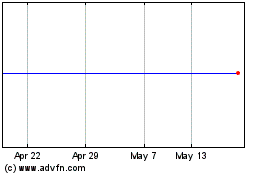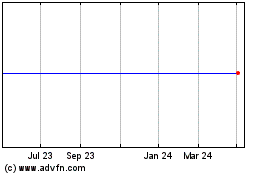Ambarella Brings Generative AI Capabilities to Edge Devices; Introduces N1 System-on-Chip Series for On-Premise Applications
January 08 2024 - 5:00AM

Ambarella Brings Generative AI Capabilities to Edge Devices;
Introduces N1 System-on-Chip Series for On-Premise Applications
Ambarella, Inc. (NASDAQ: AMBA), an edge AI semiconductor company,
today announced during CES that it is demonstrating multi-modal
large language models (LLMs) running on its new N1 SoC series at a
fraction of the power-per-inference of leading GPU solutions.
Ambarella aims to bring generative AI—a transformative technology
that first appeared in servers due to the large processing power
required—to edge endpoint devices and on-premise hardware, across a
wide range of applications such as video security analysis,
robotics and a multitude of industrial applications.
Ambarella will initially be offering optimized generative AI
processing capabilities on its mid to high-end SoCs, from the
existing CV72 for on-device performance under 5W, through to the
new N1 series for server-grade performance under 50W. Compared to
GPUs and other AI accelerators, Ambarella provides complete SoC
solutions that are up to 3x more power-efficient per generated
token, while enabling immediate and cost-effective deployment in
products.
“Generative AI networks are enabling new functions across our
target application markets that were just not possible before,”
said Les Kohn, CTO and co-founder of Ambarella. “All edge devices
are about to get a lot smarter, with our N1 series of SoCs enabling
world-class multi-modal LLM processing in a very attractive
power/price envelope.”
“Virtually every edge application will get enhanced by
generative AI in the next 18 months,” said Alexander Harrowell,
Principal Analyst, Advanced Computing at Omdia. “When moving genAI
workloads to the edge, the game becomes all about performance per
watt and integration with the rest of the edge ecosystem, not just
raw throughput.”
All of Ambarella’s AI SoCs are supported by the company’s new
Cooper™ Developer Platform. Additionally, in order to reduce
customers’ time-to-market, Ambarella has pre-ported and optimized
popular LLMs, such as Llama-2, as well as the Large Language and
Video Assistant (LLava) model running on N1 for multi-modal vision
analysis of up to 32 camera sources. These pre-trained and
fine-tuned models will be available for partners to download from
the Cooper Model Garden.
For many real-world applications, visual input is a key
modality, in addition to language, and Ambarella’s SoC architecture
is natively well-suited to process video and AI simultaneously at
very low power. Providing a full-function SoC enables the highly
efficient processing of multi-modal LLMs while still performing all
system functions, unlike a standalone AI accelerator.
Generative AI will be a step function for computer vision
processing that brings context and scene understanding to a variety
of devices, from security installations and autonomous robots to
industrial applications. Examples of the on-device LLM and
multi-modal processing enabled by this new Ambarella offering
include: smart contextual searches of security footage; robots that
can be controlled with natural language commands; and different AI
helpers that can perform anything from code generation to text and
image generation.
Most of these systems rely heavily on both camera and natural
language understanding, and will benefit from on-device generative
AI processing for speed and privacy, as well as a lower total cost
of ownership. The local processing enabled by Ambarella’s solutions
also perfectly suits application-specific LLMs, which are typically
fine-tuned on the edge for each individual scenario; versus the
classical server approach of using bigger and more power-hungry
LLMs to cater to every use case.
Based on Ambarella’s powerful CV3-HD architecture, initially
developed for autonomous driving applications, the N1 series of
SoCs repurposes all this performance for running multi-modal LLMs
in an extremely low power footprint. For example, the N1 SoC runs
Llama2-13B with up to 25 output tokens per second in
single-streaming mode at under 50W of power. Combined with the
ease-of-integration of pre-ported models, this new solution can
quickly help OEMs deploy generative AI into any power-sensitive
application, from an on-premise AI box to a delivery robot.
Both the N1 SoC and a demonstration of its multi-modal LLM
capabilities will be on display this week at the Ambarella
exhibition during CES.
About AmbarellaAmbarella’s products are used in
a wide variety of human vision and edge AI applications, including
video security, advanced driver assistance systems (ADAS),
electronic mirror, drive recorder, driver/cabin monitoring,
autonomous driving and robotics applications. Ambarella’s low-power
systems-on-chip (SoCs) offer high-resolution video compression,
advanced image and radar processing, and powerful deep neural
network processing to enable intelligent perception, fusion and
planning. For more information, please visit www.ambarella.com.
Ambarella Contacts
- Media contact: Eric Lawson, elawson@ambarella.com, +1
480-276-9572
- Investor contact: Louis Gerhardy, lgerhardy@ambarella.com, +1
408-636-2310
- Sales contact: https://www.ambarella.com/contact-us/
All brand names, product names, or trademarks
belong to their respective holders. Ambarella reserves the right to
alter product and service offerings, specifications, and pricing at
any time without notice. © 2024 Ambarella. All rights reserved.
A photo accompanying this announcement is available at
https://www.globenewswire.com/NewsRoom/AttachmentNg/10ee7319-3783-423b-b8f6-d3f6d219293b
Ambarella (LSE:0YU1)
Historical Stock Chart
From Jan 2025 to Feb 2025

Ambarella (LSE:0YU1)
Historical Stock Chart
From Feb 2024 to Feb 2025
